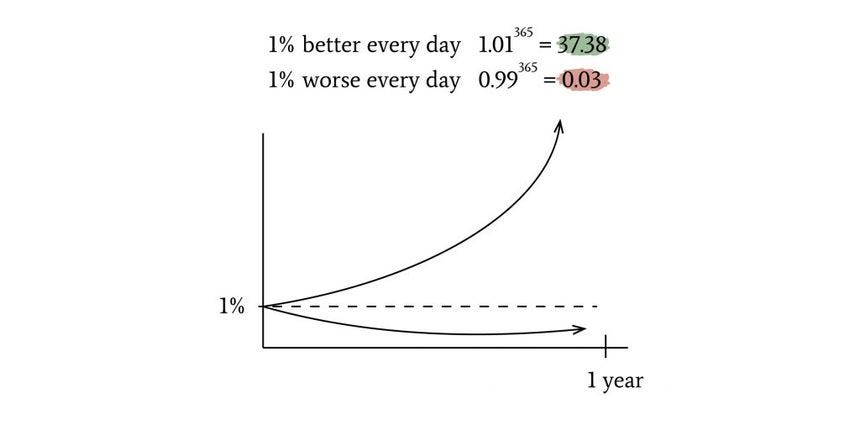Practice Does NOT Make Perfect, Practice Makes Permanent
Language Learning Made Simple
Welcome, aspiring polyglot! People often mistakenly believe that practice will make them perfect in their target language. This could not be further from the truth. Practice will, however, make what you are working on permanent. Whatever you plan on doing, the more you practice the easier things will get for you. That goes for every aspect of language learning from reading and writing to interpretation and speaking.
At the same time, your goal with your language learning should not be perfection because if you seek perfection you will be constantly confronted by analysis paralysis. Irrespective of your language learning goals, when you get to the point where you can continue through mistakes you will know you have made it. Consider yourself a master musician. Understand that if you do not acknowledge your mistakes, no one will. You will almost always be your own harshest critic.
Practice makes permanent
One of the reasons Duolingo is seemingly so good is it prompts constant repetition. Of course, there is such a thing as too much repetition. When it gets to the point where you are getting perfect scores on everything it is time to up the challenge level. Without progressive overload you will feel like you are making more progress than you are because you are consistently seeing positive results in the mini quizzes. In reality you are not making the progress you should be making because the extent of your self evaluation comes down to what your app tells you. If the goal is to get you to return to the app day in and day out, they likely will avoid doing things that make you feel like you are less than perfect.
Mistakes are part of the game and until you accept that it will be almost impossible to speak with any degree of fluency. It is important to try and nail down the correct usage of different vocabulary words and grammar rules, but not so careful that you stop from speaking. After years of speaking a language you will still make mistakes. In all likelihood you make mistakes in your native language every single day. Even if you do not, many people do and a fear of making mistakes never stops them. Do not let it stop you. At the end of the day, no one cares if you mess up. All that matters is that you are able to communicate.
The best example of this is probably sports and games. Irrespective of the ability to communicate with absolute fluency, sports teams and people who play games together always manage. Additionally, no matter your learning style the more you speak with people and the more you hear the language spoken the better you will get. Card games, board games, and sports are all things that helped with your first language acquisition and they will help with your second language acquisition. You will be faced with key words. There will be tons of basic phrases you can use all the time. Best of all, you will have the opportunity to speak early and often building your confidence.
An advantage of practice that is often overlooked is that of residual confidence. When you get to the point where you can speak fluidly and translate quickly in your head then confidence will naturally follow. As you build confidence more and more you will be able to develop your language skills with less and less effort. Placing an emphasis on the things that bring you confidence in your target language is important. Whether that is writing, reading, speaking, or listening comprehension, whatever gives you the most confidence will be one of the best things to keep practicing. However, every time you go back you need to be increasing the difficulty. It does not have to be a lot. All you need is to be 1% better.
Level up your target language every day: 1% better
Progressive overload is one of the key components to learning a new language. Fortunately, all you have to do is get 1% better every day. If you have not seen the graph before, this is consistency beats intensity every single day of the week:
When fluency is your goal, getting slightly better every day over the course of a year is all you need to do. Listening comprehension where you recognize one or two new words every day. Writing sentences that increase in length with progressively more complex grammar. Speaking written sentences with relative fluency. Reading with a focus on using context clues to discern the meaning of words you do not recognize. All of these things will sharpen your skill.
That said, when you make mistakes you will be able to see your faults in different contexts. This, in turn, will provide you with a method of remembering and, hopefully, not continuing to make the same mistakes. Mistakes are good, recurring mistakes are the problem. While studying a new language, however, sometimes what matters most are the little victories.
The difference between a good language learner and great language learners often breaks down to the ability to carry momentum across a plateau. In order to build that momentum, all you need to do is start collecting little victories. Most language teachers fall short here as it can be difficult to define a "win" that is not connected to a standardized test in a second language. Whether you prefer a point system or an established amount of comprehensible input to define your victories, what matters most is that you have defined wins you can collect. If you are having a difficult time nailing down your second language acquisition wins check out this article and take what works for you:
How to Know You're Winning
Welcome, budding polyglot! As I am certain you know, one of the most frustrating aspects of learning a new language is that there are times when it feels like absolutely no progress is being made. Weeks on end where it feels like the same subjects and material are being covered incessantly. I have felt this way with every language I have tried to learn …
Tying your language skills together using second language strategies
Once you have begun to practice, integrating your target language into your daily life is going to be vital. If you are not forced to use it every day then you are going to have a difficult time maintaining consistency. Foreign languages are different from many things in that they demand constant attention. Unfortunately, without a plan in place it can be easy to forego this step.
When you neglect your foreign language you will find that your language skills suffer. You have no problem with your first language, but that is because it is necessary for your survival. When you are able to create an environment that is similar with your target language you will find that your second language acquisition process is easy to maintain.
Integrating your second language into your daily life is simple, but that does not mean it is easy. You will be forced to think in your target language and this will be exhausting. All you really have to do is replace the daily tasks you already do in your native language with tasks in your new language. If you read the news in your first language, read it now in your second language. Do you spend time watching sports? Watch them in your target language. Watching TV before bed every night? Watch a new show in a foreign language.
Learning to think in your foreign language of choice is extremely difficult, but doing so will also result in better language skills. The simple steps to this look like this:
1. Think of the words that correspond with the things you are seeing
2. Play out conversations in your head
3. Make up scenarios for the situations you are seeing
4. Write
5. Try your own translations
6. Try reverse translations
7. Listen for words in your new language that are the same as those in your first language
Doing these things is fantastic, but you will also want to diversify your stimuli. Working with the same materials day in and day out will not be conducive to your long term success. The ability to understand a variety of input from a diverse group of sources is paramount for the development of your communication strategies. With how many options exist, you should only be doing things that hold your interest. There is no reason, at this point, to be doing things that bore you. While frustration can be good, boredom is rarely going to be beneficial for your language learning. For more ideas of what you can do check out this piece:
It Should be Fun
Welcome, budding polyglot! This is Second Language Strategies, the best location to be when acquiring a new language is the goal. At this point I think it fair to say that public education by and large has failed students when it comes to language acquisition. I could go through the numbers, but if you’ve been outside in the United States it is pretty c…
Conclusion
Practice is fantastic, but if you go in expecting it to make you perfect you will be severely disappointed. What practice does do is ensure you will be able to recall the things you are working on with relative ease. Aside from practice making your input stick for longer, becoming slightly better every day will enhance and accelerate your language learning journey. At the same time, integrating your foreign language into your daily life should be a constant focus. You should always be thinking of ways you can add your language into your day. Until you do it for months you will be stuck translating your thoughts.
Then, one day, you will find that you no longer have to actively think about what you are going to say or what is being said to you. People often ask if there is a magic switch that one day flips and the truth is, there is. However, no one can tell you precisely when that day is. The only certainty is, the more you practice and the more you challenge yourself the sooner you will get to the point of speaking with ease. It is not an easy thing to do, especially in a sustained fashion, but it is simple.
Learning a language is no easy feat, it will be difficult irrespective of how you approach it. Using the strategies listed here can and will enhance and accelerate your language learning experience, it will not be easy. But you can do difficult things and be great, so continue to do difficult things and be great. I will be here by your side endeavoring to do the same.
Be sure to check out Second Language Strategies to catch up on anything you missed, find me on Twitter or Instagram for some short form content. If you are struggling to get speaking in your target language, join our Discord! I look forward to seeing everyone’s progress in the months and years to come.








